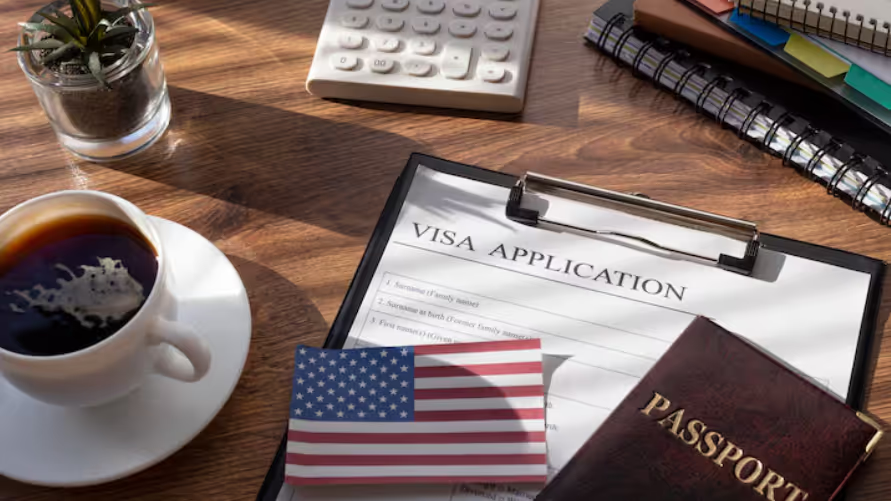.png)
.png)
Discover how startup founders with extraordinary ability can form a Delaware C-Corporation and use it to pursue an O-1 visa, with guidance from Beyond Border Global, Alcorn Immigration Law, 2nd.law, and BPA Immigration Lawyers.

When you’re a startup founder seeking an O-1 visa, selecting a U.S. legal entity is one of the earliest steps. Many founders opt for a Delaware C-Corporation (“C-Corp”) because Delaware offers familiar investor-friendly law, clean share-class structure and ease of venture funding. Importantly, for the O-1 visa, the entity may act as your U.S. employer or arm’s-length agent, which allows the petitioner to file the required Form I-129 on your behalf. The entity alone doesn’t guarantee success—but it lays the structural foundation.
Begin by selecting a company name, appointing directors and officers, drafting and filing the Articles of Incorporation with the Delaware Secretary of State, and naming a registered agent in Delaware. Foreign founders can own and control a Delaware C-Corp—as Delaware does not require U.S. residency or citizenship for shareholders. After incorporation you must obtain a U.S. Employer Identification Number (EIN) from the Internal Revenue Service (IRS), open a U.S. bank account, and maintain compliance with state and federal filings (e.g., Delaware franchise tax, annual reports). While this process is fairly standard, you must ensure the business is capable of operating—not just a paper shell—because for visa purposes the business will need substance.
One of the key issues for founder-funded O-1 petitions is demonstrating that the C-Corp can legitimately “employ” you (the founder) such that it files the O-1 petition. The entity must show that it has the ability to supervise your work, pay you a salary (or otherwise compensate according to the terms of the employment), and treat you as a beneficial employee rather than an independent contractor or passive investor. This often means drafting an employment agreement between you and the C-Corp, organising a board of directors or advisors who can exercise oversight, and showing that you are working in the capacity that aligns with your O-1 petition (i.e., extraordinary ability in business/technology). Many founders bring in independent directors or advisors to strengthen the governance structure.

While the entity exists, the O-1 petition still hinges on your individual achievements and the company’s operating profile. Your petition must demonstrate that you meet the O-1A criteria (extraordinary ability in business or technology) through evidence such as significant press coverage, major awards, patents or industry recognition. Concurrently, the C-Corp’s business narrative should support why you will work in the U.S. for that entity—e.g., by showing the company has traction, funding, clients or unique capabilities. Legal experts such as Alcorn Immigration Law emphasise that your role and the company structure must align so that USCIS views your move as legit and not as mere self-employment. The corporate narrative, funding rounds, and operational plan all feed into the visa case.
Immigration officers will look for evidence that your U.S. entity is more than speculative. This includes demonstrating funding, customer contracts, intellectual property, press mentions or market traction. For example, a Delaware C-Corp that has raised venture capital or is in advanced negotiations helps strengthen the case. Governance matters: ensuring the entity is properly capitalised, has board meetings, and records of operations will help show that you are actively leading a legitimate enterprise.
With your entity in place and your business narrative built, the next step is having the C-Corp file the Form I-129 petition for you. The employer-employee relationship must be properly documented. You need an advisory opinion letter from a peer or expert in your field, a contract between you and the company, and an itinerary of the work you’ll perform in the U.S. under the O-1. It is still technically a petition filed by an employer (or authorized agent) and not purely self-petitioning, so aligning the entity structure correctly is key. Experienced firms such as Beyond Border Global and BPA Immigration Lawyers help map these components into a coherent case.
After you receive the O-1, the work doesn’t stop. You must maintain the employer-employee relationship, continue to document your business activity, and ensure your role remains consistent with what was approved. Governance (board minutes, shareholder meetings), financial records (payroll, bank statements), and immigration compliance (travel, work location) all feed into future renewals or extensions. 2nd.law and Beyond Border Global emphasises that maintaining digital records of dates, work output, and contract changes helps sustain status. Over time, these records also strengthen other immigration pathways (e.g., EB-1A) if you choose to move onward.
Forming a C-Corp alone doesn’t equal visa eligibility. If your entity lacks substance, if your role appears passive or the business is not active, USCIS may deny the petition. Foreign founders must avoid working without authorization, paying themselves without a clear employer-relationship, or treating the entity purely as a vehicle rather than an operating business. You also must not rely on yourself as both sole owner and sole controller without independent oversight, as the employer-employee relationship may be questioned. Another common mistake is failing to document your extraordinary-ability achievements separately from the business entity.
Frequently Asked Questions
Can I be the only founder and still use a Delaware C-Corp to support an O-1 petition?
Yes, you can be the sole founder and majority shareholder of a C-Corp; however the structure must still reflect a credible employer-employee relationship, and you should ensure there is some governance or oversight separate from yourself so that the petition is credible.
Is forming the Delaware C-Corp enough to start my O-1 petition?
No. While the Delaware C-Corp is a key foundational step, you still must meet the O-1 criteria for extraordinary ability, have the entity serve as your employer/agent, show credible work in the U.S., and compile all required documentation.
Do I need to raise VC funding before filing the O-1 petition as a founder?
Not always, but demonstrating funding or traction greatly strengthens your case. A well-capitalised corporation, investor commitments or customer contracts help show the business is legitimate and operational, which in turn makes your O-1 petition stronger.
Can I form the Delaware C-Corp from outside the U.S. while I’m abroad?
Yes. You do not need to be physically present or reside in the U.S. to incorporate the entity. Foreign founders can own and control a Delaware C-Corp from abroad. However, working in the U.S. for that entity will still require proper work authorization (such as the O-1).
What if I already have a foreign company and want to switch to the U.S. C-Corp for my O-1 case?
You can perform what is commonly known as a “Delaware flip” where the foreign entity becomes owned by the new U.S. C-Corp. Then you align the U.S. entity as the petitioning employer. Careful tax, corporate, and immigration structuring are required so that the transition does not undermine your petition.